HIT CHANNEL EXCLUSIVE INTERVIEW: April 2014. We had the tremendous honour to talk with an extremely talented person: Derek Shulman. He was the lead vocalist of Gentle Giant, one of the greatest ‘70s progressive rock bands. After the split of Gentle Giant in 1980, he became a prominent record executive and he signed bands like Bon Jovi and Cinderella (as an A&R representative at PolyGram Records), Dream Theater and Pantera (as president and CEO of Atco Records) and Slipknot and Nickelback (as president of Roadrunner Records). Before Gentle Giant, he was a member of Simon Dupree & the Big Sound and The Moles. In March of 2010 Derek Shulman established a new venture with international music impresario Leonardo Pavkovic called 2 PLUS Music & Entertainment, Inc. Read below the very interesting things he told us:
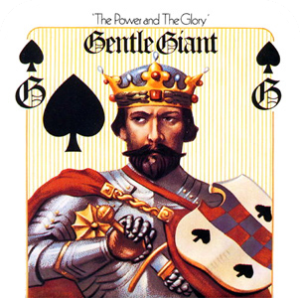 Are you having any involvement in Steven Wilson’s upcoming “The Power and the Glory” (1974) remix?
Are you having any involvement in Steven Wilson’s upcoming “The Power and the Glory” (1974) remix?
Yes, of course. Myself and my brother Ray (ed: Shulman –bass, violin) we are actively involved with it and working with Steven and basically running the procedure which is going forth. Both myself and Ray have been hands on with this along with Steven. Ray, in fact, has done a lot of the motion graphics and I kind of work out some the plans and we work together. It’s the same as always, myself and Ray have been the driving force.
In 2010 you said that the band is working at creating an animated film based around the themes, characters and songs of “The Power and the Glory” album. Will it be released soon?
Yes, it’s going to be released probably in late June all over the world.
Tony Visconti (David Bowie, T. Rex, Thin Lizzy producer) produced the first two Gentle Giant albums, “Gentle Giant” (1970) and “Acquiring the Taste” (1971). Were you satisfied with his production?
Tony was fantastic. In the first album he basically taught the band what it was like to produce a record. I mean, the band really wasn’t very adept at understanding what working on a studio for album was actually like and he was very-very much involved on the first record. He showed us the way. In fact, he was more than helpful because we had to go to London; we lived to Portsmouth, which is 70 miles outside of London. We came to London and we all couldn’t afford hotel rooms, so he allowed us to live on his floor (laughs). So, yes he was very-very much involved. On the second album he was less involved, although he was definitely the producer, because we were very good learners. So, we watched every move he made –this is myself and my brother Ray. He was certainly the producer per se, but I think we learned by the first album how to get the best out of our own group and by “Acquiring the Taste” even though he was there, he was less a “hands on” and by the third album “Three Friends”, the group we were producing ourselves.
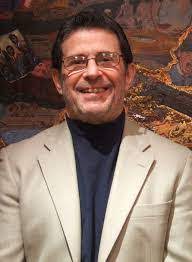 When you recorded with Gentle Giant albums like “Octopus” and “Three Friends” (both in 1972) had you realized how revolutionary they were?
When you recorded with Gentle Giant albums like “Octopus” and “Three Friends” (both in 1972) had you realized how revolutionary they were?
Of course not (laughs). In these albums it was just the band being who we were. There was certainly no intention or kind of force of a legacy, anything that has developed. We were just Gentle Giant and we were just a band of musicians who we were pushing ourselves each other to become better musicians for each other #1 and #2 for the band and for our compositions and ultimately to become a band of fairly good musicians who can play music for fans who would enjoy music that we put together. So, ultimately it was just an incarnation of who we were individually as musicians and hopefully the fans would come and come along and would enjoy what we had put together. This was the only reason for existence. We didn’t do it for fame, money or any other experience rather than just to make really enjoyable music together.
Did you have any concept album as a role model when you recorded “Octopus” in 1972?
No, the only reason it was called “Octopus”, was because it contained 8 songs. We just married the “octo” and “opus”, a Greek and a Latin word to become “Octopus”. We were fairly literally family the Shulman brothers Phil, Ray and myself, so we composed eight songs on some of the interesting concepts and ideas that we had read or heard about or discussed personally and the lyrics fitted songs we had also composed. So, there wasn’t per se a real a concept on that album. This was just the way we wanted to put it together. I think it’s fairly good, actually.
Were you frustrated when Black Sabbath fans didn’t respect Gentle Giant when you toured together in 1972?
I wasn’t frustrated, I think. In retrospect, it was quite funny. There was one show that is fairly legend in Los Angeles, at the Hollywood Bowl, but in fact this was a disaster for everyone, because Black Sabbath themselves also literally collapsed on stage. Tony Iommi fell flat on his face at this show also. So, it was a comedy of errors. We knew it was going to be an uphill battle. It was a strange bill to start off with it: Black Sabbath who had already had quite a lot of success with their first album or two in North America, and Gentle Giant who played almost the exact opposite types of music. But we had the same management and then in those days, the fans were much more open to whatever was in front of them. So, although the crowd was waiting for “Paranoid” and “War Pigs” initially, we usually won the crowd over by sheer will power. And towards the end of the show we sometimes received cheers and standing ovation, except of course Hollywood Bowl where my older brother (ed: Phil Shulman –trumpet, saxophone) reacted in a “negative way” and hurled a hilarious insult to the crowd who were restless to say the least. That’s history, we can laugh about it now, but at that time was: “Oh, shit! What we do?” But it’s ok, life goes on.
 How difficult was it to perform on stage with Gentle Giant the music you had recorded in the studio?
How difficult was it to perform on stage with Gentle Giant the music you had recorded in the studio?
Not difficult at all. As far as we are concerned, the recorded music is only a sketch for the stage show. So, effectively it’s like a drawing for a painting. And when we recorded our albums, the music we recorded was only an outline for what we wanted to present on stage. So, on stage we could expand on the themes, on the compositions we had recorded in a different fashion, with different instrumentation etc.. We would stretch in different ways to embellish a song with different music and arrangements. So, really it’s a kind of sketch for a painting. The sketch was the record and the painting was the stage show.
Many people believe that punk rock “killed” Gentle Giant. What is the truth?
Not, at all. Punk rock was about one chord or two chords and the street. I thought it’s funny as hell, actually. It was important for music to be shaken up. I liked it actually in a perverse sort of way in some respects, because it was so non-musical and such a new “lifestyle”. In many ways, it did shake up a lot of popular music at that time, in late ‘70s. I think as far as I am concerned and my brother is concerned, we had run the course of a creative sense. And the fact is, as we were going in the ‘80s, we didn’t want to become parodies of ourselves. And I’ll say this: when playing music started to become like a job -and that’s what began to happen towards the end- then it’s time to stop. Because it starts to become less about creativity and it starts becoming something you do for money. And that’s why we stopped.
“Free Hand” (1975) is the most successful Gentle Giant album. How spontaneous was its more accessible sound?
The music was quite rehearsed before we get in. We didn’t “jam” a lot in the studio. We would never just play around for hours on end. We could usually jam to get the best solos and interesting kinds of ideas, which were already based on something already composed. We never went in the studio without a piece of music that we had already written at home or indeed sometimes a real score, a musical score. In fact, Kerry Minnear (ed: keyboards), as you probably know has a degree in composition, and he would sometimes come with actual scores, both vocal scores and musical scores. So, there wasn’t a huge amount of much free form playing in the recording process. Even though, we certainly would try out different solos and different kinds of instrumentation and different ideas, it was pretty well rehearsed before we get in. We didn’t really like to spend a lot of time just doodling around on instruments for no reason.
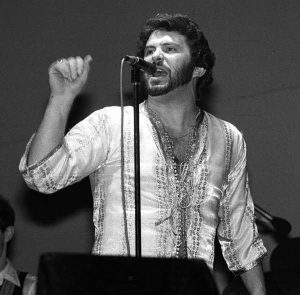 How do you feel today when you hear the term “progressive rock” as far as Gentle Giant?
How do you feel today when you hear the term “progressive rock” as far as Gentle Giant?
Listen, I guess everything has to have some kind of title these days. I don’t why. I think people tagged Gentle Giant in that kind of compartment, because it didn’t sound like Journey or Boston and it didn’t sound like The Beatles. It kind of sounded like some of the contemporary bands that we were working with whether it’s ELP or Genesis or Yes. One thing I think we had, not to sound too precious here was that we were doing it for reasons of musicality. I don’t want to sound pretentious, but we were all too busy pushing ourselves individually and as a group to be better musicians, than wondering about what the public would think. Even though we wanted them to enjoy what we had put together. We were probably a bit selfish here… but so it was. So, we have been tagged as a progressive band… Yes, we had no say in the matter. We were a band on the road with our own ideas and philosophy and music and whatever people thought about it, they could decide what they wanted to call it.
What are the current projects regarding 2PLUS Music & Entertainment?
Oh, there are a lot of things going on. There are so many projects. I oversee a label called Frontiers Records. YES is on my label. It’s a strange thing (laughs).
I think you have Jeff Lynne and ELO too.
Yeah. I think Jeff Lynne is a major talent. Fantastic writer. So, we have Frontiers, we have the management of Red Dragon Cartel with Jake E. Lee (ex-Ozzy Osbourne guitarist) and Loudness. We work on many other projects.
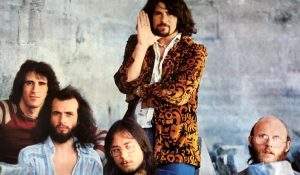 As a prominent record executive you signed Bon Jovi, Dream Theater, Pantera and many other bands. Did you expect that these bands would be so successful or the label had nothing to lose by signing them?
As a prominent record executive you signed Bon Jovi, Dream Theater, Pantera and many other bands. Did you expect that these bands would be so successful or the label had nothing to lose by signing them?
This is a strange question. Of course I expected that they would be successful. I think I have a very decent ear and instinct for understanding what will become popular in different ways. That’s why I learned it because I had learned it by working in the music corporation. I think I realized it when I started work at PolyGram which is my first day job after Gentle Giant. The business that my group Gentle Giant was in wasn’t the music business at all. It was the business of music, which was hard to swallow but was a harsh reality. I became aware that recorded musical success was not what my band was about. The music business had changed and marketing and promotion was as important as the music. I had to decide a way to make a difference (and a living) in the “music business world” in a corporation. In the same respect, Ray my brother produced records and DVDs. You asked me: Did I expect that they would be successful? Yes definitely, for a couple of bands. I was absolutely certain that Bon Jovi’s “Slippery When Wet” (1986) was going to be a huge hit. I knew it. I knew Pantera was going to be big. Yeah, I did know it. I knew Nickelback was going to be big. Yeah, I did. I did.
You are a talented person both as a musician and as a record executive.
(Laughs) That is yesterday’s news. I am trying to continue to go forward, continuing to learn and mentor for the future.
Do you think social networks like Youtube and Facebook, can really help an independent musician?
I think the era of the independent musician becoming a mass appeal star is over. I think music itself –which is a very sad situation for me- has become a secondary culture to a couple of generations. I have two kids: my daughter is 35, my son is 31. Although, music is still an important and primal factor in their lives, it is not as important as the high technology world. Music in my era was the driving force of culture. It isn’t quite important anymore to anyone. It’s sad. Becoming a real musician and hoping that you are going to be famous or make money or whatever, does not happen, in this day and age. It is almost impossible to garner mass appeal in a world where hi-tech computer programmers and producers who are the star makers are the focus. There was a LOT of hard work and playing by the classic artists of my era. I don’t know who will replace bands like Led Zeppelin, Deep Purple and Yes and Gentle Giant and how it will happen. These artists put in years of practice before they were recognized. A lot of kids these days think that they will go on Youtube and it just happens. It doesn’t work that way. Never did and never will.
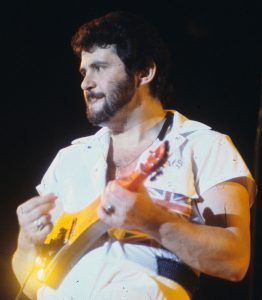 In the ‘70s you could listen to Jethro Tull or Steely Dan on the radio. Why today’s radio is so awful?
In the ‘70s you could listen to Jethro Tull or Steely Dan on the radio. Why today’s radio is so awful?
Because it’s all about money. It’s all about corporate profits. It’s all about ratings and advertising. It has nothing to do with music.
When was the last time you turned down an offer for a Gentle Giant reunion?
Every week.
As a record executive do you agree with band reunions?
It’s not for me to judge. It’s down to musicians when and how they want to reform. I cannot pass judgment on this. As far as Gentle Giant is concerned, I think that it would certainly hurt some kind of legacy. We are different people, we have moved on. When you close a page in a history book, you can’t re-write it. We are 30 years older and we don’t look the same and don’t sound the same. Maybe we would sound better, but it wouldn’t be the same. The memories of something which is good, bad or indifferent, are eternally stamped for anyone who knows the group. Somethings that are good I hope, should remain just that -great souvenirs. To see five old guys who can play their instruments but probably with less nimbleness and cannot run around the stage would shatter any legacy or lasting memory It was the right time to close the chapter and for us not continue and not say: “Let’s do it for the money”. One thing that Gentle Giant never did and I am absolutely categorical about this was “do it for the money”. It was “do it for the music”. Always.
Reginald Dwight who later adopted the stage name Elton John was briefly the keyboardist of your pre-Gentle Giant band, Simon Dupree & the Big Sound. How was it like to be in the same band with Elton John?
I think you should ask him: “How was it like to be in the same band with Simon Dupree?” (laughs). I was bigger than him then. His name was Reggie at that time and he was great. He was a fantastic person. A great keyboardist. I mean different style that we were going towards, but he is an amazing talent. He was writing songs like “Your Song”, “Skyline Pigeon” etc. We had fun and he wanted the job to be the keyboardist and I told him myself and my brother Ray that we are going to stop this band because we want to expand our musical universe and try to start a new band, even though our first band Simon Dupree & the Big Sound was quite successful. And he auditioned to be in that band. And he played us his songs and even though they were great songs, they weren’t going in the direction we were heading. Lucky for him, we turned him down. He changed his name to Elton John and he became the most successful solo artist in the world. And we were struggling to play for 200 people. So great luck for him that he didn’t take the job.
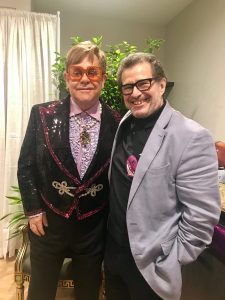 What kind of music are you listening to at the moment?
What kind of music are you listening to at the moment?
Not too much, actually. I love classical music of course. The standard classics. I like some of the interesting hip-hop. I don’t like hip-hop as a genre but some of the artists that come from that world like Pharrell and The Roots people, they are good players. By the way, it’s very interesting to get to know that a generation of these African-American musicians is listening to Gentle Giant. It’s very interesting to hear and understand what is going on. There are some interesting bands like Phoenix from France and Beirut from the USA. There are interesting kinds of bands that have more than a chord or two. But generally, nothing blows me away, to be honest with you. Just a couple of songs. It almost feels like the late ‘50s and early ‘60s again.
Before the formation of Gentle Giant, you released a double A-side single as The Moles and there was a rumor that The Moles were, in fact, The Beatles recording under a different name and with Ringo Starr as lead singer. Do you know how this rumour came up?
Yes. It was our first manager. It was a big publicity stunt. The truth is that at that time after “Kites” (ed: a single by Simon Dupree & the Big Sound) which was a gigantic hit for the group, we also wanted to move on a little bit. Because again myself and my brothers Ray and Phil, felt that we were stalled in being a pop band and we still wanted to be better musicians. So, that’s the start of what we were going to do as Gentle Giant, in some ways. We did something in the studio and our manager said: “Let’s start this P.R campaign” and we said: “That’s ok. Go ahead. We will go along with it”. A lot of people showed attention and Syd Barrett of Pink Floyd blew the whistle on this. So, Syd bless his heart stopped this us in our tracks!!
A huge “THANK YOU” to Mr Derek Shulman for his time.
Official Gentle Giant website: http://www.blazemonger.com/GG/Gentle_Giant_Home_Page
Official Gentle Giant store: http://www.gentlegiantmusic.com
2PLUS Music & Entertainment website: http://2plus.us

